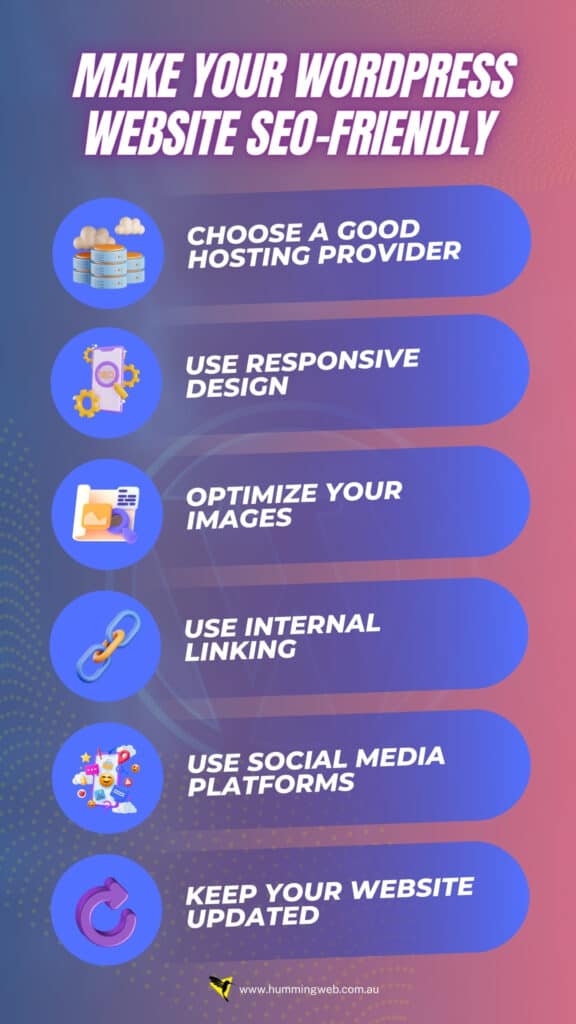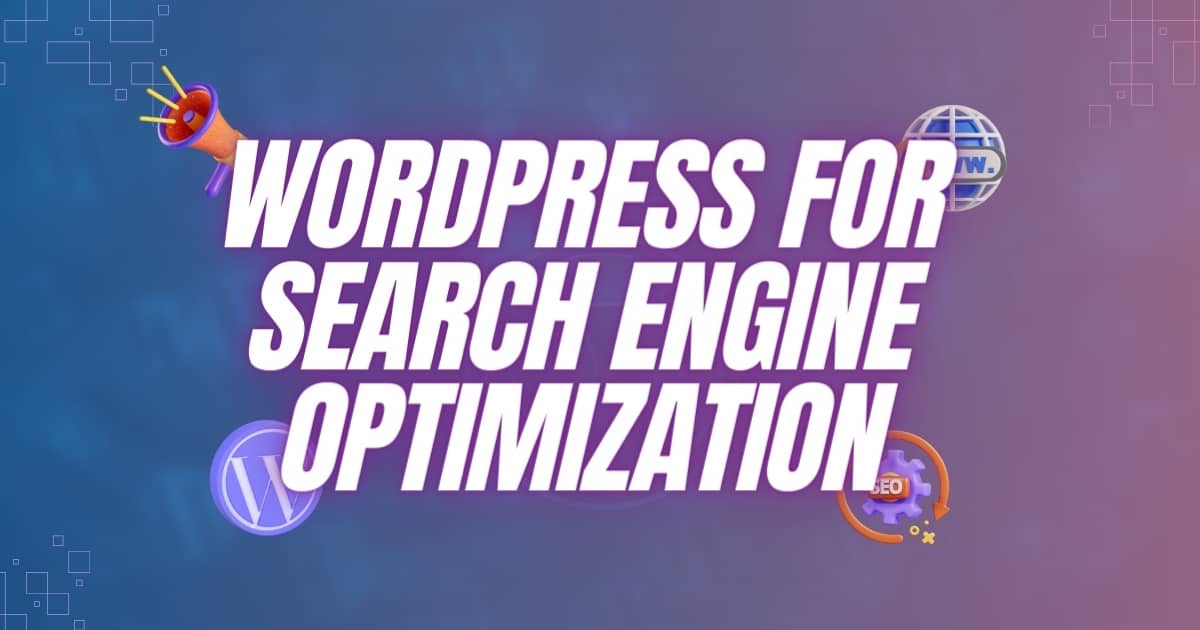WordPress can be extremely SEO-friendly if it is set up and maintained properly. The platform itself is designed in such a way that it is friendly and compatible with Search Engine algorithms. Inbuilt features such as clean code, built-in permalink structure, and the ability to create SEO-friendly URLs along with title and keyword management make it SEO-friendly.
Additionally, there are various cool plugins and tools available for WordPress that can help improve SEO. For example, Rankmath, SEO Press, and Yoast SEO plugins are popular options that can help you optimize your content for search engines. It offers a range of features, such as the ability to set meta descriptions and titles, analyze content for readability and keyword usage, and generate XML sitemaps. Meta descriptions and titles can be managed page-wise based on page title and that is a major advantage.
However, it’s important to keep in mind that simply using WordPress does not guarantee good SEO. Although the platform is developed keeping SEO in mind, you still need to create high-quality content that is relevant to your target audience, build quality backlinks to your site, and ensure that your website is fast, secure, and mobile-friendly. Ultimately, the SEO-friendliness of your WordPress website will depend on how well you implement these practices.
In addition to the points mentioned earlier, here are some more ways to make your WordPress website more SEO-friendly.

Choose a good hosting provider
Your hosting provider can affect your website’s speed, security, and uptime, all of which are important for SEO. Choose a reliable and fast hosting provider. All major hosting providers that are best in the market support WordPress like a charm and this is a good reason to use WordPress.
Use responsive design
More and more people are using mobile devices to browse the internet, so having a website that looks good and functions well on different devices is important for both user experience and SEO. WordPress themes are built in such a way that it looks good and are well structured across various devices like laptop, desktop, mobile tablets etc.
Optimize your images
Large images (large in size like in Mb) can slow down your website loading time which is a major drawback for SEO purposes, so make sure to compress and optimize your images. Also, include descriptive alt tags and file names for your images to make them more SEO-friendly. So in this case also, WordPress comes up with various plugins for the optimization process of images which maintain quality intact but compress the size. WordPress also has in-built functionality to add Alt tags and captions for images which will be crucial in the SEO process.
Use Internal linking
Linking to other pages on your website helps search engines understand your website’s structure and helps users navigate your website. This can help improve your website’s ranking in search results. WordPress has great WYSIWYG editors built in the backend so that you can add anchor tags easily to internal link your articles which will help Search Engines and users to navigate through your site easily.
Use social media
Sharing your content on social media can help attract more visitors to your website, which can help improve your website’s SEO. Social media activity can also signal to search engines that your content is popular and relevant. WordPress has lots of such Social media sharing Plugins built which will help the author to share the articles without any hassle. Most plugins share the content over various popular Social media like Instagram, Facebook, Twitter, etc. automatically once the article is published.
Keep your website updated
WordPress frequently releases updates to its platform, plugins, and themes. Keeping your website up-to-date can help improve its security, speed, and functionality, all of which can contribute to better SEO. Updating the core WordPress files, plugins, and themes is an easy click-and-go process. Simply log in to your website backend and update by clicking the update link that is found in the backend area.
Overall, WordPress can be a great choice for building an SEO-friendly website, but it’s important to keep in mind that good SEO requires a combination of technical and content-related optimizations.


